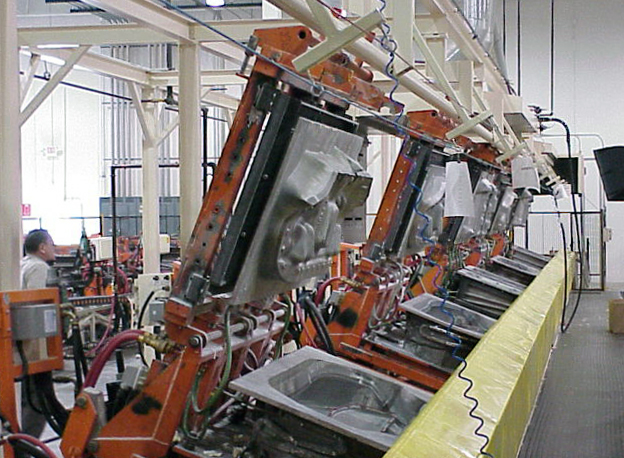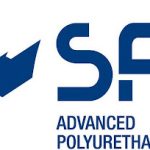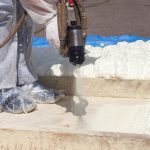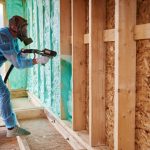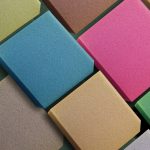Get More from Your Polyurethane Mixtures
In the polyurethane foam production industry, gas infusion, or gas nucleation, refers to the process of dissolving and distributing a gas into a polyurethane mixture.
Flexible polyurethane foam, produced from those mixtures, is used in a wide array of products with its strengths of durability, support, and versatility, helping it find vital uses in many industries. Here we’ll explore what makes up a polyurethane mixture, the role gas infusion plays within it, and offer some examples of how that process further adds value to an assortment of polyurethane foam products and services.
Components of Polyurethane Mixtures
It’s important to note that all polyurethane is a mixture of two primary chemical materials — polyols and diisocyanates. This mixture will have different traits and attributes and thus serve different purposes and applications, based on the ratio used between those primary components. In addition, the way that mixture is produced will also impact the polyurethane foam cell structure and resulting performance of that foam.
Gas infusion introduces another key variable into that mixture that can provide more specific tuning for how that particular polyurethane foam will perform and its cell structure. Depending on the gas used, gas infusion can increase the overall quality of the mixture or imbue the resulting material with desired properties.
By changing the ratio of chemical components used, the mixing method, and if/which gas infusion technique is employed, polyurethane foam manufacturers can create different foam cell structures to serve different purposes.
For example, multiple types of polyurethane foam cell structures are used in the automotive industry. Softer mixtures will serve as the structural core for parts like seat cushions that prioritize support and comfort for passengers. But a different cell structure will be used when creating polyurethane foam to serve as a protection element against excess noise or fill out structural parts like bumpers.
Improving or augmenting the cell structure of polyurethane through gas infusion is critical for many of the supportive- or protection-based applications for polyurethane foam. Whether it is smooth-filling insulation for a building project or strengthened polyurethane used in aerospace production, improving polyurethane foam cell structure with gas nucleation is vital for polyurethane foam production overall.
Reasons to Use Gas Infusion in Your Polyurethane Mixtures
Most gas nucleation will aid in the overall cell geometry of polyurethane foam, particularly in applications that require high-strength performance. Cell geometry refers to the product’s ability to maintain the characteristics you set out to establish. For example, many producers use polyurethane foam for protective or comfort-related purposes — be it sports equipment or padding for packing or mattresses. Suitable cell geometry makes sure there is conformity throughout the material. Less cell geometry leads to an inability for the foam to remain consistent once dispersed into a mold or onto a surface and may result in voids or gaps in the final product.
Failure to produce reliable, complex geometry results in damaged or wasted final products, increasing production times and costs. Gas infusion helps guarantee the final characteristics of their particular polyurethane application while at the same time cutting back on the chances of material failure.
The choice of which gases to use for infusion purposes also depends on the desired results. Carbon dioxide (CO2), for example, is best suited for imbuing specific properties into the mixture.
When added to the polyol component of a urethane mixture, CO2 can reduce its overall weight as well as the amount of material used to achieve the desired results. This helps companies using polyurethane in their production process realize cost savings and improved performance levels. With less weight and enhanced sound absorption qualities, a CO2-infused mixture is beneficial for many industries, from transportation to building construction.
Linden Polyurethane offers a CO2 Gas Infusion(™) Blending Unit that manages the homogenous distribution and dissolution of CO2 into the polyol component of your polyurethane formulation. This system continually monitors and updates the level of CO2 in your polyurethane mixture, which will help regulate CO2 consumption and lower your chemical cost while adding cellular structure benefits, reduced part weight, and acoustical absorption properties.
Learn more about our CO2 blending system here.
Introducing Nitrogen (N2) into your polyurethane mixture can improve mixing quality — among other benefits. Polyurethane foam, through the use of advanced mix heads, can be applied into a variety of open and close molds as well as sprayed for various applications. Ensuring a consistent level of quality across all these different modes can be difficult.
But the addition of N2 into the mixture keeps the polyurethane foam cell structure free from surface defects, helps the mixture dispense more evenly, and improves the production quality. These improvements are seen in better wet-ability, increased mixing, and surface quality. With N2 infusion, material dispensed on a surface that might see streaking, or runs, or not fill correctly — like a vertical surface such as a wall — will have a stronger, higher-performing distribution.
With Linden Polyurethane’s Dry Air/N2 Gas Infusion Blending Unit, you’ll be able to better control critical aspects of the application of your mixture material. This system will help prevent streaks and runs in molding complex geometries or part configurations and is more accurate than specific gravity (SG) sampling. This unit will help improve your foam characteristics and reduce urea formation as well.
Learn more about our N2 blending system here.
Find the Right Gas Infusion Solutions for Your Business
Linden Polyurethane has been helping companies in multiple industries worldwide for more than 30 years to support their production with polyurethane services that increase efficiency and throughput and also provide the right equipment for their needs. Backed by best-in-class warranty and repair services, our gas infusion systems will help make your polyurethane mixtures more reliable, more cost-efficient, and more effective.
Contact us today to learn more about our polyurethane production goods and services.

